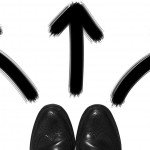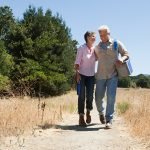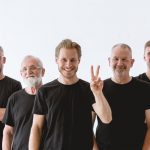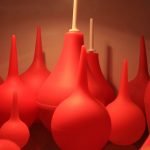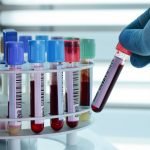Wired for Self-Healing- Part 2
JAMES SENSENIG, ND
LOUISE EDWARDS, ND, LAC
This column is transcribed from a weekly live conversation produced by the Naturopathic Medical Institute (NMI). The goal of NMI is to preserve and promote the principles of naturopathic philosophy through clinical application, in your offices and in your communities, every day. This lightly edited transcript (by Emily Kane, ND) is the second part of a 3-part conversation between Drs Jim Sensenig and Louise Edwards, which took place on April 5, 2017.
Dr Sensenig: We’ve moved so far from our understanding of guaranteed self-healing, particularly in our culture, that, generally speaking, it’s lost on large segments of the population. You stated that self-healing is a fundamental principle of evolutionary biology. If that’s true, how could we put toxins in the system and expect that it’s going to return a person to health? And yet, that’s what allopathic doctors are doing.
I had a patient I hadn’t seen in 2 or 3 years, who, unbeknownst to me, was in the hospital recently for a hip replacement. While he was in the hospital, his blood pressure increased enough that the medical doctors were concerned and put him on 2 medications for his blood pressure. He’s now a week or 2 post-surgery, and he called here yesterday wanting to know if he can get off his medications. He said, “They put me on 2 poisons.” Those were his words. “I don’t want to be taking this stuff.”
All the old-timers that we were privileged to learn from and work with would point out to us repeatedly, “You can’t poison someone back to health.” If our underlying goal is to correct the problem via the environment to restore normal function, it’s difficult from a therapeutic point of view to understand why anybody would use something that’s toxic to the system as a first intervention.
Dr Edwards: “Ignorance” is the answer to that question. Here’s a little pop quiz:
Name the 1 part of the human organism that is not 100% composed of what we eat, drink, or breathe. Answer: There are none.
Name a single biochemical or physiological process in the body that is not 100% dependent on what we eat, drink, or breathe. Answer: As above, there are none.
Dr Sensenig: That reminds me of an anecdote. Some years ago, I had an associate here who had a pre-rehearsed response for when a patient says, “Well, my doctor said that it doesn’t matter what I eat.” That this happens is amazingly, especially with gastrointestinal problems! People with inflammatory bowel disease and the whole range of GI problems are told by their gastroenterologists that their diet has nothing to do with their problem!
My colleague would pause, take off her glasses and put them down on the desk, put down her pen, she’d lean back in her chair and cross her arms, and she would look at the patient and say, “Now, let me make sure I understand this correctly. Your doctor is telling you that what you put into your body in no way affects your overall health or your symptoms? Am I understanding that correctly? That’s what they’re telling you?”
Invariably, the patient would say something like, “Well, now that you put it that way, it sounds kinda stupid, doesn’t it?”
Brilliantly Simple
Dr Edwards: In so many ways, what we do is so absolutely simple. If you look at our philosophy – which guides our therapeutic protocols – in a simple, rational way, then everybody can see the truth of it. I actually don’t have difficulty explaining our medicine to the average person.
Dr Sensenig: You need to understand the idea of an intelligent, ordered universe, where the movement of living things is in the direction of repair and balance.
Dr Edwards: Which is the inherent movement towards health and self-healing. It’s such a simple concept.
Dr Sensenig: It is really simple – conceptually, really very simple. Now, it could be really complicated in the sense that we have many different tools that require a certain level of expertise for their application. If you want simple, just give somebody a toxin that will suppress their symptoms, like the allopathic docs do. That’s the therapeutic rationale of the other school.
Our approach is simple in the sense that there’s a simple set of governing principles that are based on common sense; they are natural laws.
Here’s another anecdote: When I was still living in Portland and working at National College, I would go down to Tucson every once in a while to get some sun. In those days, there was no sun in Oregon. After about 3 or 4 years in practice, I was visiting a friend in Tucson one day. She said to me, “This is so simple. All I have to do is tell people to drink more water, and their constipation gets better, their digestion gets better, their skin clears up, their blood pressure comes down, and their headaches go away.”
I tell that anecdote as an illustration that we are so far from being in balance with nature, that if you chose a practice where you did nothing but have people get adequately hydrated, or nothing but get their trace minerals up, or nothing but have them eat a little bit differently, or nothing but meditate, etc… If you had a practice that did only that 1 thing, you would still have a certain amount of success.
Dr Edwards: I want to go back to this issue about simplicity and how we got so far away from treating the underlying imbalances and from recognizing our self-healing properties. In the process of evolution, becoming self-healing organisms, when we were out of balance with any particular determinant, such as hydration, we developed these compensatory mechanisms, particularly well shown by the evolution of our kidneys. Our kidneys allowed us, when we were either overhydrated or underhydrated, to compensate – either by discharging more dilute urine if we were overhydrated, or discharging less and more concentrated urine if we were underhydrated.
We have these compensatory mechanisms to manage and maintain homeostasis when determinants are disturbed. If we don’t have enough of a particular nutrient, we can pull those nutrients out of our tissues as long as we replenish them later. We have these fabulous compensatory mechanisms that not only adapt to a stressed environment, but also show us how we’re out of balance. If I look at my urine and I see it’s really concentrated and dark, that discharge is showing me that I’m not hydrated enough. This miraculous compensatory mechanism has tried to balance me out and return me to health.
If we stay relatively in balance with our determinants of health, those compensatory mechanisms, which are going on all the time, keep us in good health. But if we get too far out of balance with any of the determinants of health, then we start generating signs and symptoms of strained compensatory responses to those underlying imbalances.
Signs and symptoms – both of those words mean “indicative.” A sign is indicative of something else. A symptom is indicative of something else. What they indicate are those compensatory responses – those hundreds of thousands of biochemical compensatory responses in the human organism which are compensating for being out of balance with 1 or multiple determinants of health.
To make this incredibly clear, we have a disturbance in the determinants of health. We then get a compensatory response in our organs and systems. Then, oftentimes, we get a discharge or, if we’re out of balance too far, the compensatory response will start manifesting signs and symptoms. For instance, if you are chronically dehydrated, you will have constipation, arthritis, fatigue, and trouble focusing, etc, because these conditions are all correlated with dehydration.
If we name those signs and symptoms as the disease, rather than seeing them as the indicators, we will only try to eradicate the signs and symptoms. It’s similar to this example: If you don’t like Walmart, you go and blow up the sign in front of the store. You haven’t done anything about Walmart as a store; all you did was blow up a sign that told you where Walmart was.
If we eradicate those signs and symptoms without dealing with the underlying imbalance, we’re ignoring what is showing us the way to those underlying imbalances. We need to understand that the compensatory responses – that part of that innate and ordered intelligence of all living organisms – is trying to return us to health.
What Constitutes Evidence?
Dr Sensenig: This reminds me of a basic understanding of how the body works. It’s called “basic science.” And yet, I think in some of our institutions, we’re teaching the basic sciences from the platform, or the paradigm, or the model, of allopathic medicine. So, the students don’t quite get that understanding that you’re laying out here.
I’ll throw in another anecdote: When I was first starting to teach at Southwest some years ago, when Dr Cronin founded the college, there was an edict or directive in place that all non-ND faculty and staff had to take the philosophy course. It was a 1-week intensive course, but everybody working for Southwest who was not a naturopathic physician had to sit through the philosophy course. He wanted everybody in the college to understand naturopathic philosophy, and not assume that they knew what naturopathic medicine was because they watched Dr Weil or Dr Oz or whoever was around in those days.
The reason I bring this up is that I distinctly remember an encounter several years ago, with a new PhD physiology teacher. I was teaching the 5-day intensive course in Naturopathic Philosophy for these non-ND faculty members. I can remember on Wednesday morning, 2 days into the course, the teacher came in and said, “You have completely changed the way I understand physiology.”
I asked her to explain. She said, “Well, I’ve been looking at physiology all these years as a set of facts. But you just gave me the paradigm that brings it together.”
Physiology is nothing more than the study of how the body compensates and adapts to disturbances in an attempt to get back to normal. One would have hoped from that day on, her presentation of physiology in the classroom would still provide the same information, the same facts – a fact is a fact is a fact; there’s no quarrel with the facts – but would also emphasize that what those facts mean must be interpreted through your world view or your paradigm or your basic assumptions, etc.
Dr Edwards: That’s exactly right. The National University of Health Sciences [NUHS] in Lombard, Illinois, is now 11 years old. Dr Fraser Smith, a Canadian, who went to school in Ontario, and was on faculty there for a while, was given the job of starting the naturopathic program at National University of Health Sciences.
Dr Smith was absolutely clear that he wanted to root the program in the traditional naturopathic principles and philosophy. That was part of why he hired me. In setting up the program, one of the things that we discussed was the buzz around evidence-based medicine. We all wanted that information. But what constitutes “evidence” in conventional medicine? The premise is wrong from the start. The evidence allopaths are talking about is “evidence of having eradicated the signs and symptoms.” It’s pathology-focused and generally involves a silver-bullet drug approach to so-called “cure.”
What we decided to do at NUHS was to create a course that gave the students an understanding of the evidence, rooted in the basic sciences. But we have not had the opportunity to deeply educate all of our faculty about our principles. We decided to focus on our students, to teach them how to look for the evidence of what works. We have a course called “The Basic Sciences and the Determinants of Health.”
What we did is go through and look at the core determinants in relationship to the basic sciences. For instance, when we look at hydration, we look at all of the biochemical processes that are dependent on water. We look at the anatomical component of water – we’re made up of 75-80% water – so we teach the students right away how to be in their basic science courses and see the evidence for our medicine. The evidence for our medicine is embedded in the basic sciences.
You can find the evidence for our medicine and you can clearly, undeniably, represent it. We don’t need to defend it, because our approach to restoration of health has a rational basis in the basic and advanced sciences. That’s why I did pop quizzes about how many physiological processes are dependent on what we eat, drink, or breathe. It’s plain, simple science. That’s the evidence for what we do.
This column, based on the Vital Conversations of the Naturopathic Medicine Institute, will continue in next month’s NDNR.
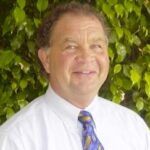
James Sensenig, ND was a 1978 graduate of NCNM in Portland, OR. For over 40 years he maintained an eclectic practice in Hamden, CT. Over the years, Dr Sensenig held prominent positions in the various naturopathic colleges and the AANP. A champion of classical naturopathic medicine, Dr Sensenig received an Honorary Doctor of Naturopathic Philosophy degree from CCNM, and received numerous awards for his dedication to teaching the principles of naturopathic medicine.
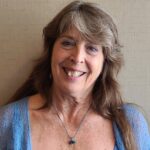
Louise Edwards, ND, LAc graduated from National College of Naturopathic Medicine in 1988, and from the Oregon College of Oriental Medicine in 1989. She had a full-time private practice in Durango, CO, until 2005, when she chose to primarily focus on teaching and writing. She is an adjunct faculty member at National University of Health Sciences and Bastyr University and is a frequent presenter at conferences. Dr Edwards in a founding member of the American Association of Naturopathic Physicians, has served on the AANP board, and served for 15 years in the House of Delegates. She received the AANP’s “Vis Award” in 2011.


